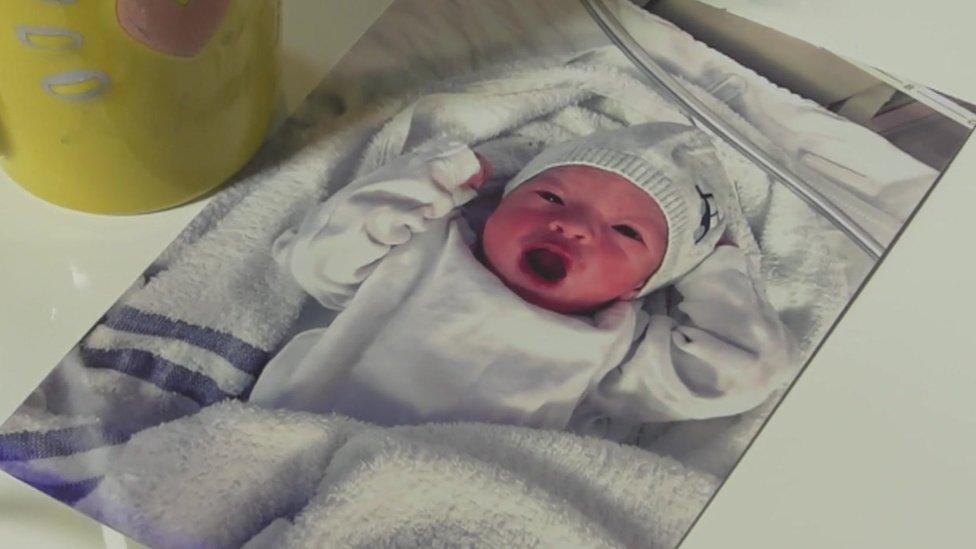Parents seek second inquest into baby's hospital death
- Published
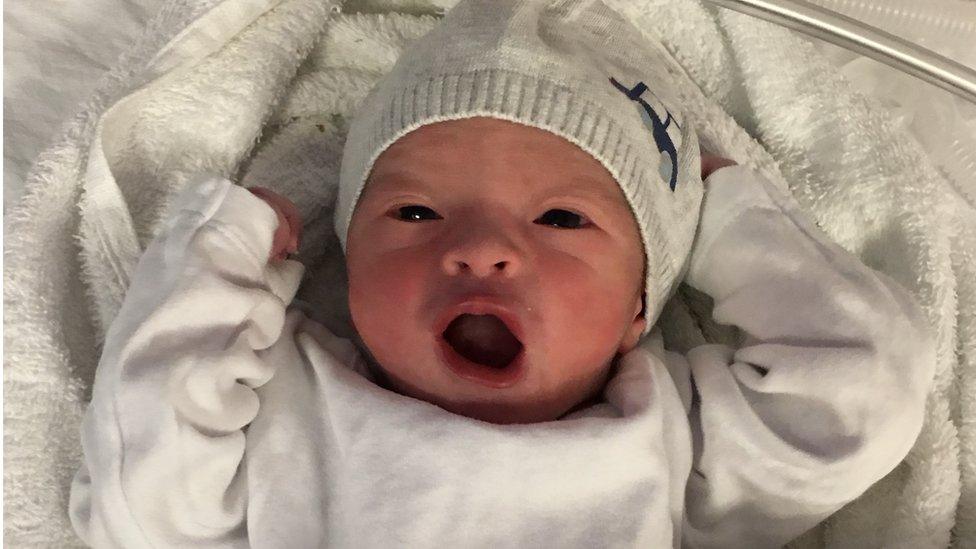
Hayden Nguyen was born in 2016
The parents of a baby who died after medical errors are to push for a new inquest into his death, after they say a "cruel" inquest denied them justice.
Hayden Nguyen died in 2016 after medics failed to treat an infection properly.
But despite the NHS trust admitting mistakes, coroner Shirley Radcliffe concluded the infant died of natural causes, after raising concerns about the hospital's initial investigation.
The coroner has refused to comment on her actions.
"What the coroner did was kill Hayden a second time," Hayden's father, Tum, told the BBC.
"It was premeditated and extraordinarily cruel."
Parents Tum and Alex Nguyen say the inquest into the death of six-day-old Hayden was "unjust"
Hayden was six days old when his parents took him to the Chelsea and Westminster hospital in west London in August 2016.
He initially had a fever but rapidly deteriorated; he had a cardiac arrest and died within 12 hours of arriving there.
An internal NHS investigation concluded eight errors were made in Hayden's care, and the root causes of his death were:
failure to identify the signs of shock
failure to act on abnormal test results
"When they had completed the investigation, they sat us down and took us through it line by line," says Alex Nguyen, Hayden's mother.
"Although the content was incredibly disturbing, it was in a way healing and it helped a little bit with the grieving process."
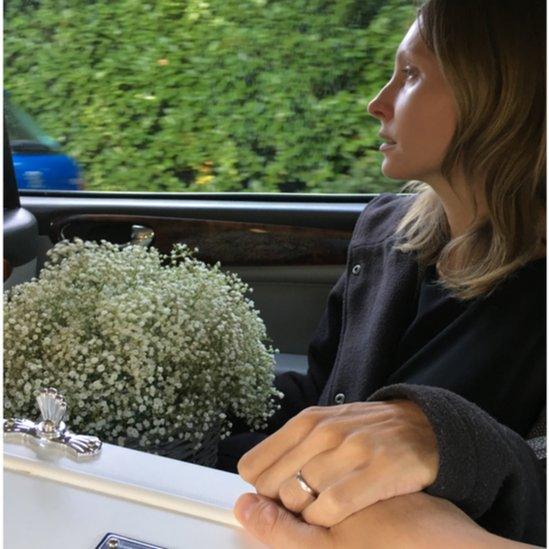
Alex Nguyen with her son's coffin - he died aged six days

An inquest at Westminster Coroner's Court, conducted by Dr Radcliffe, followed.
However, the coroner, who has overseen inquests into the deaths of celebrities such as Amy Winehouse and Dolores O'Riordan, was not happy with the hospital's investigation.
Unbeknown to Tum and Alex, Dr Radcliffe contacted the Chelsea and Westminster to express her concerns.
'High mortality'
Her actions prompted the hospital to issue a second report into Hayden's care, which halved the number of errors, and said the root cause of his death was the infection "which is known to have a high mortality".
Armed with this second report, the coroner concluded that Hayden had died of natural causes.
"What the clinicians did was negligence, possibly neglect," says Tum.
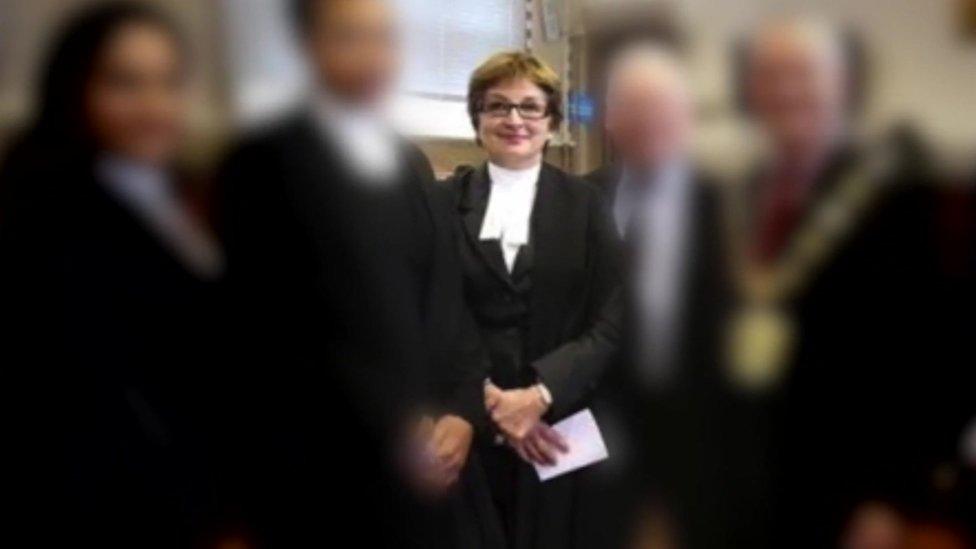
Coroner Shirley Radcliffe concluded that Hayden died of natural causes
"But I don't think they did it in a premeditated fashion. I think what the coroner did was premeditated and cruel."
When they overcame their astonishment at the coroner's actions, the parents, who work in social media and IT, pursued the case by taking legal action against the hospital.
The Chelsea and Westminster acknowledged that failures had contributed to Hayden's death.
A letter from its lawyers says: "The expert evidence obtained on behalf of the trust indicates that had the severity and progression of Hayden's condition been recognised and acted upon earlier, he would have survived beyond 07:15 on 25 August 2016".
Neither the hospital nor the coroner responded to the BBC's request for comment.
There are virtually no avenues for families to challenge the conduct of coroners.
The chief coroner's office explicitly says it does not comment on coroners' conclusions, and in each of the past three years only 0.2% of complaints against judicial office-holders were upheld by the Judicial Conduct Investigations Office.
Peter Walsh, who leads the charity Action against Medical Accidents, has supported scores of families who have been failed by the NHS.
While he says coroners have huge latitude in how they conduct inquests, he says he is surprised by what happened here.
"I've never heard of another case where an investigation led by a hospital trust, finding and admitting mistakes, is challenged by the coroner at an inquest," said Mr Walsh.
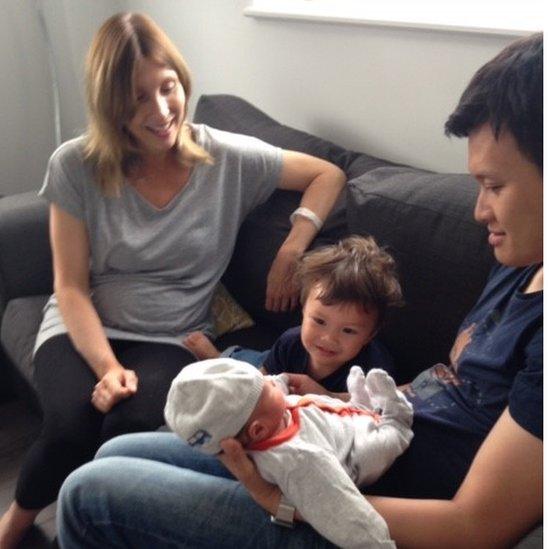
Alex Nguyen, older son Harrison and husband Tum with baby Hayden in 2016

Tum and Alex appealed to the attorney general for permission to go to the High Court to get a new inquest, a request that has now been granted.
Of the first inquest, Alex says: "If you read back over the conclusions, it looks like Hayden was only six days old, was quite ill, he got appropriate care and he couldn't have been saved."
But, she adds: "That is what is on the record and it's not just and it's untrue".
Related topics
- Published21 January 2020
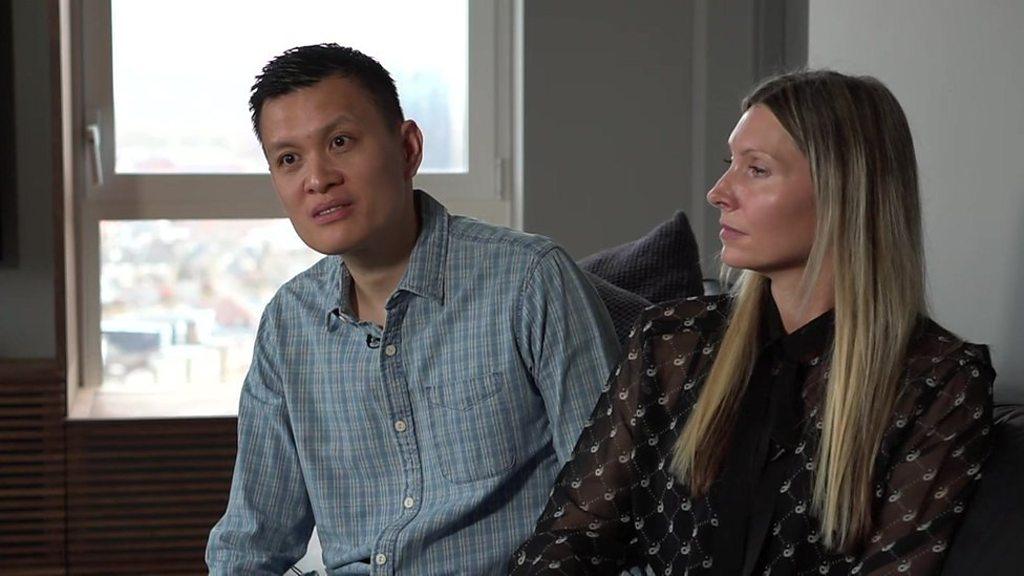
- Published21 January 2020
